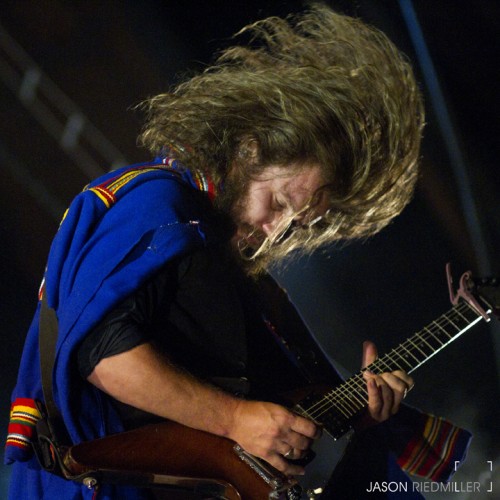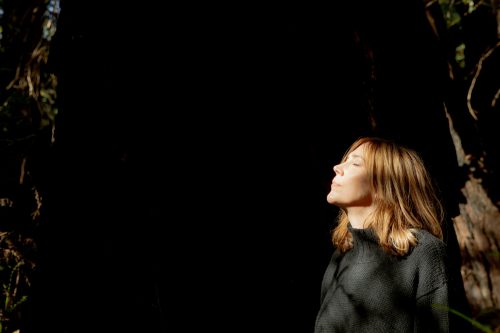The term “nervous breakdown” is often thrown around in conversation. But for the Nashville-based singer-songwriter, it means something deeper. Something real.
“What I’m talking about is a psychotic episode that lasted two weeks and landed me in hospital,” the Australian-born artist states frankly in a recent video chat. “And then I spent about six to seven weeks in hospital recovering. And then after that, I just had a very fragile period of dealing with the medication that I was put on because of that breakdown, and then coming off the medication that I was put on because of that breakdown and coming back to life. Yeah. So I’m talking about a serious mental health episode.”
Swift’s mental health journey inspired her first album of original material, “The Resurrection Game,” released Sept. 12. It is, not surprisingly, a deeply vulnerable collection of songs, but shot through with a sense of catharsis and hope, supported by lush instrumentation.
The title track is emblematic of Swift’s self-discovery, set in an “experiential therapy retreat” in Northern California that she attended, “which is a very hippie thing to do,” she admits.
“I was trying to get over myself as a person and my hang-ups by dealing with my parents’ patterns and my ingrained kinds of behavior. And a lot of that was born out of the Catholicism that I was raised in. … Children were taught to be seen and not heard, and feelings only existed to be repressed and bottled down, and that can be a good thing if you’re just trying to coast through life. But if you’re trying to become a songwriter, it’s not very helpful if you’re struggling to uncork how you feel. … But then, you know, there’s other songs that wound up on this album that are like ‘Signing Off With Love’ or ‘For You And Oblivion’ are definitely kind of post-breakdown songs.”
“Signing Off With Love” begins with the lyrics: “This bathroom mirror hates me/ Even more than you do now/ The creases on my brow/ The crooked little mouth.”
“You get to like a certain age and stage in life and you look in the mirror and you think, oh my God, how did I get here? And what choices did I make that led me to this experience?” Swift says. “You know, looking in the mirror in a psychiatric ward will do things to you. It’s not a fun place to be, but it is an illuminating place to be. If you are prone to self-criticism, you can come down pretty hard on yourself in a place like that.
“I never really imagined that my life would take that kind of turn. It wasn’t really for me like a ‘Girl, Interrupted’ experience. I wasn’t a teenager, I was 40, and so that was really intense and a profound reckoning. I had read about people being in and out of facilities, some people that I’d really admired. So like the poet Robert Lowell is in that song because I love Robert Lowell poetry. But I didn’t think that that person would be me.”
In 2020, Swift released “Blonde on Blonde,” her interpretation of Bob Dylan songs. She said the project helped her own composing.
“I mean, Bob Dylan is one of the most underrated melody writers of all time. Because he’s such a superb lyricist, I think it’s easy to forget that he’s actually a very beautiful writer of melodies, and the way that the words fit the notes in the songs. And I do think that marinating in his work has made me a better songwriter. It’s like going to a kind of finishing school.
“And also because I’d made this Dylan record and people liked it, which I’m really grateful for, that’s amazing. Because a lot of people have covered Bob Dylan, so there’s nothing special about about covering Bob Dylan. But I’m happy and relieved that that album found an audience and connected with folks. That put me under enormous pressure to kind of follow up with something. You know, I’m never going to write a song as good as Bob Dylan, but I did have to come up to a certain standard. I think I couldn’t just put out any old slop.”
She shared that her next album will be a set of Lou Reed songs called “Sweet Hassle.”
“I’m not prolific as a songwriter but I love recording, and also it is a little bit like going to school every time you marinate yourself in someone else’s work,” Swift says of the reasoning behind recording the work of other writers. “And I really love Lou Reed. He’s so cool. And he, like Dylan, had that New York experience. He also had a a profound love of poetry. But Lou Reed went through the mental health care in a way that I can relate to. He went through a lot of intense mental health stuff in the 1950s. That kind of shaped him as a person. So I can I can relate to Lou Reed in that experience. I’m really looking forward to sharing what I’ve come up with.”
Growing up in Australia, Swift had a romanticized vision of the United States. “I guess I wanted to come to Nashville and see what would happen. I thought that I was going to come to America and marry a cowboy. I was like, I’m going to meet a nice man, and he’s going to wear pearl snap shirts and listen to Kris Kristofferson and, you know, some kind of hippie cowboy fantasy I had. And I promptly met the most British person I could possibly find and married them instead.”
She’s referring to her husband Robyn Hitchcock, the influential singer, songwriter and guitarist who led the band The Soft Boys. The two have a cottage industry, releasing their music on their own label, Tiny Ghost, and often touring together — she’ll open for him at The Bowery Ballroom on Nov. 22 and the Bearsville Theater in Woodstock on Dec. 27. She doesn’t have a booking agent and has recently played in nontraditional venues like an amplifier shop, people’s living rooms and a museum.
“It’s hard for someone like me to get on the club circuit. I would love to be. I’d love to be on the club circuit. In November, I’ll be playing in New York at the Bowery. That’s because I’m opening for my partner, Robyn Hitchcock. So that’s that’s an easy club show for me to get. It’s like a nepo wife gig or whatever,” she says, laughing.




Leave a Reply